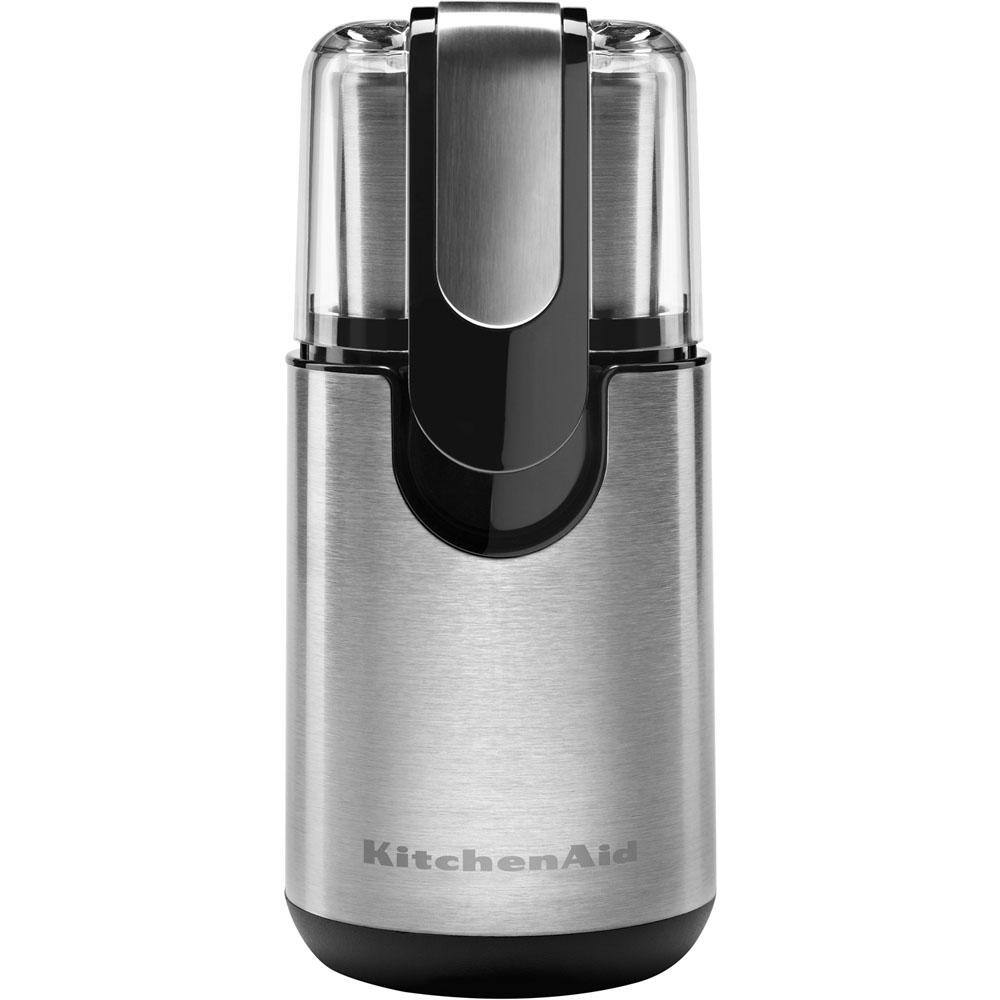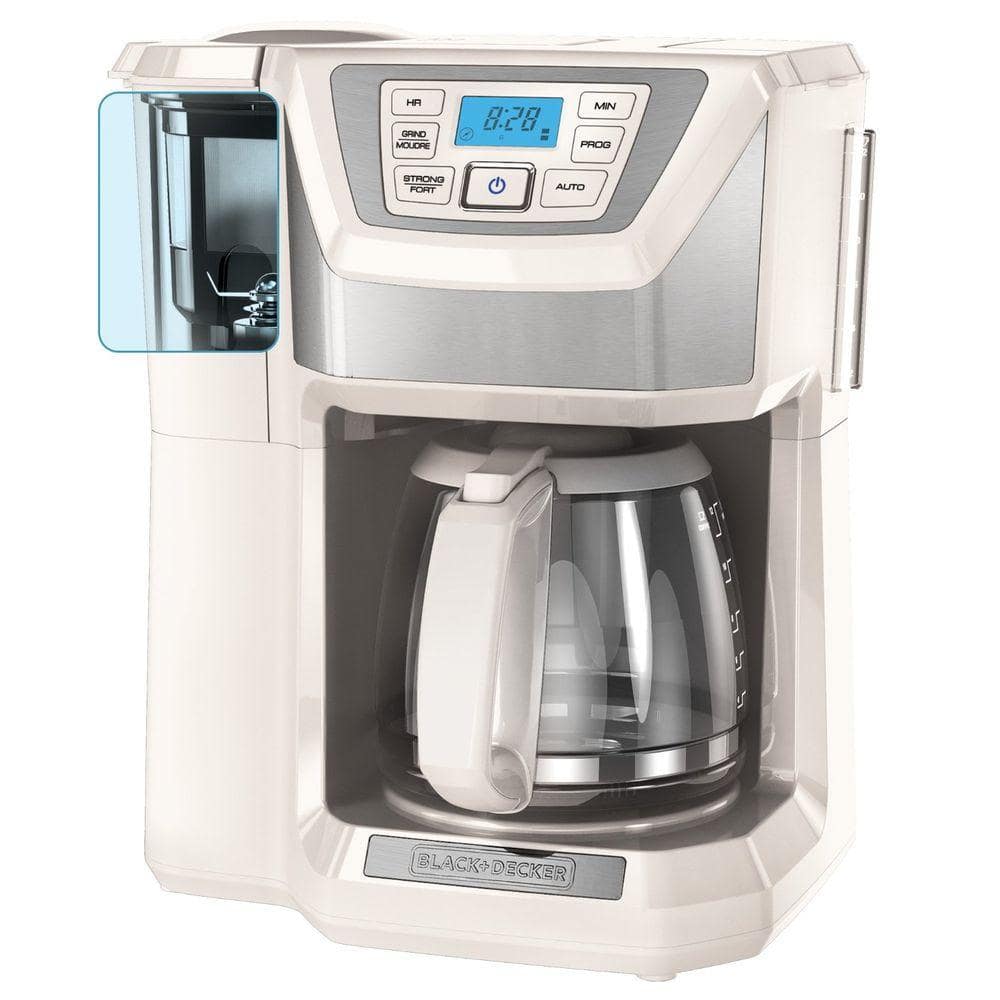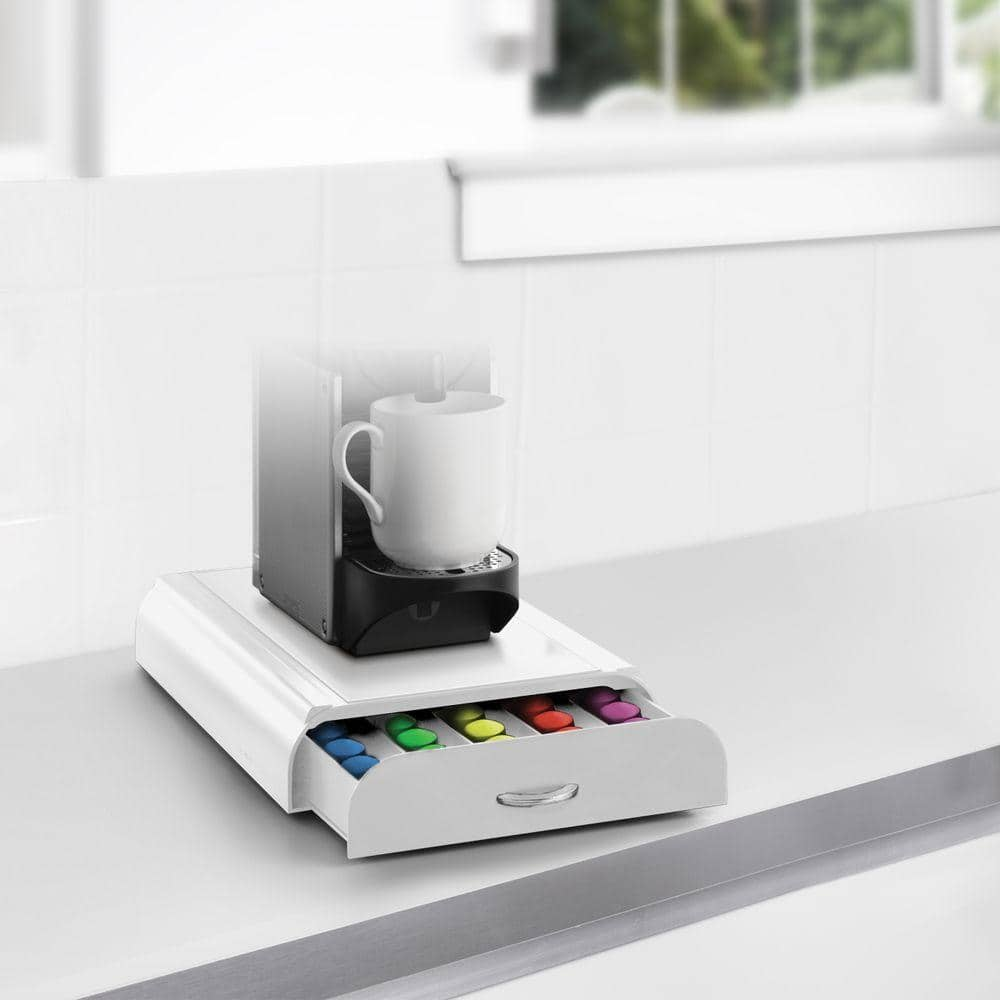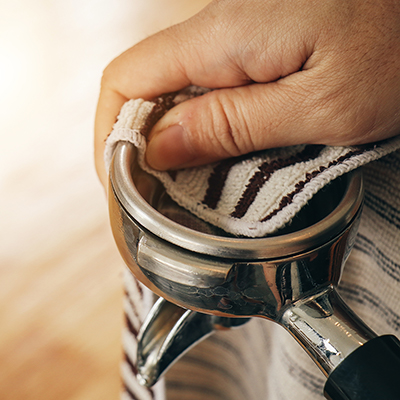Best French Press for the Avid Coffee Drinker
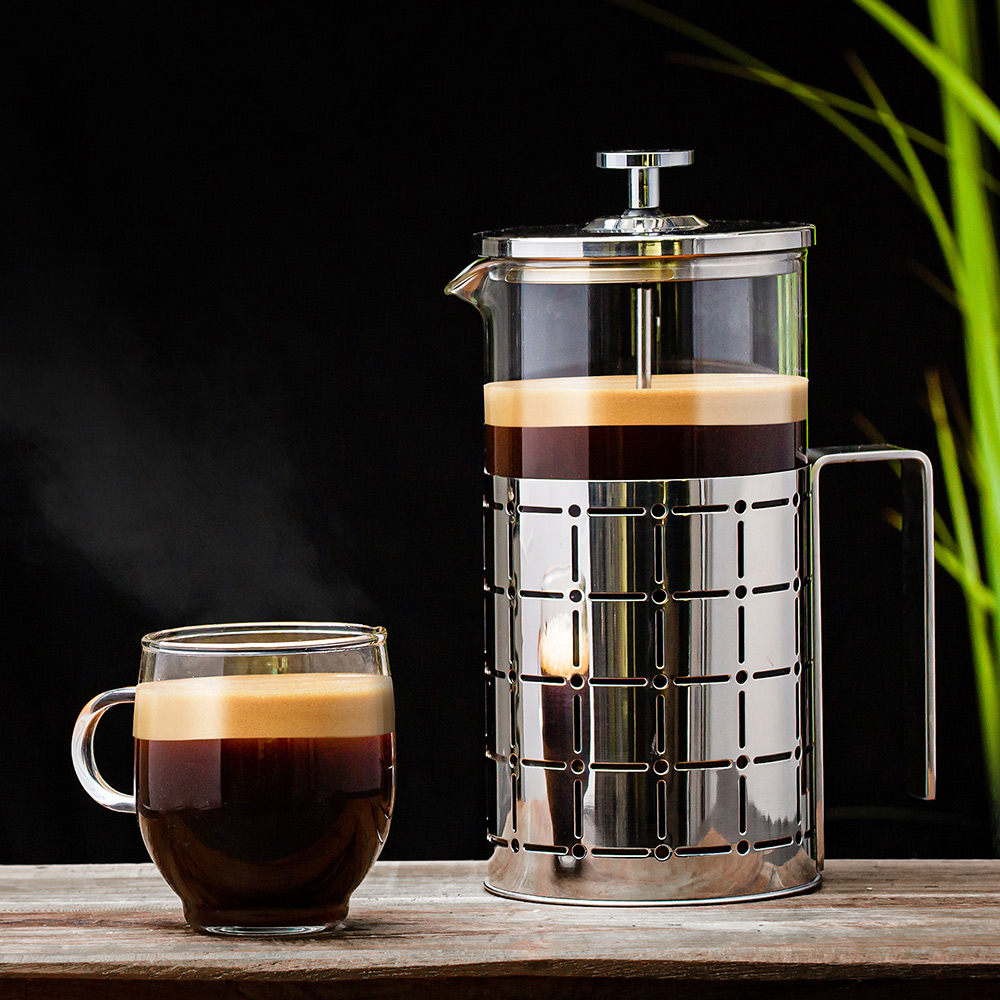
Last updated September 7, 2023
Most coffee drinkers have a favorite way to brew coffee. Some like automatic drip machines, while others choose cold brew devices, percolators, pour-over makers, espresso and other coffee appliances.
French presses are popular because they’re easy to use and produce a smooth, full-bodied drink. They also make delicious cold-brewed coffee and loose-leaf teas. Read on to learn the differences between the best French coffee press makers and what to look for in the best French press for the avid coffee drinker.
Table of Contents
Pros and Cons of French Presses
Sizes of French Press Makers
Plunger Types and Styles in French Presses
Insulated vs. Non-Insulated Carafes for French Press Makers
Materials Used in the Best French Presses
Single Filters vs. Dual Filters in French Press Makers
Pros and Cons of French Presses
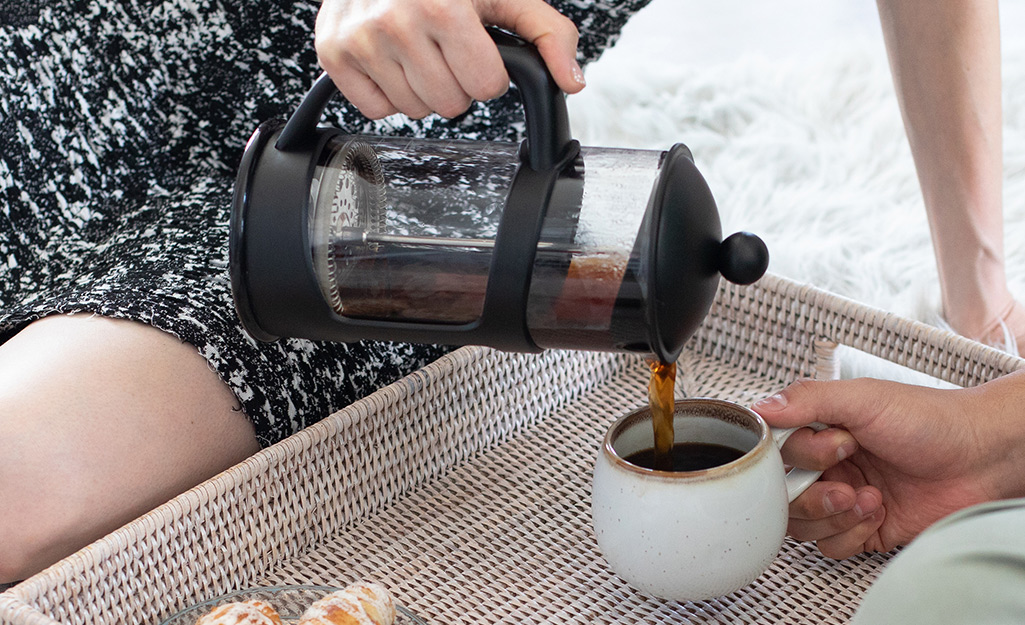
Pros:
- French presses have three parts: a carafe, lid and plunger that are easy to use and clean.
- As a rule of thumb, many of the best French coffee presses brew coffee quickly, in about five minutes.
- French presses are environmentally friendly, because they don’t use pre-packaged cups, pods or capsules. You can compost the used grounds.
- French press makers let you control the water temperature and size of the grounds, so you can make the coffee as strong as you want.
- Some of the best French presses have attractive designs that complement your kitchen decor.
- They’re versatile. You can froth milk with the plunger and use the strainer to strain broth or rinse grains.
- Some of the best French press devices have insulated carafes you can take on the road to keep your drink hot.
- Coffee usually tastes stronger when made in a French press versus a pour over.
- Coffee accessories, such as thermometers for testing water temperatures, are available to use with French presses.
Cons:
- French press makers usually make smaller amounts of coffee than other devices.
- You have to boil water separately and pour it into a French coffee press.
- When you find the best French press for your kitchen, you’ll probably need to experiment a few times with the size of the grinds and the water temperature.
- A French press versus a pour-over coffee maker usually leaves more grit, or grinds, in the finished brew.
Sizes of French Press Makers
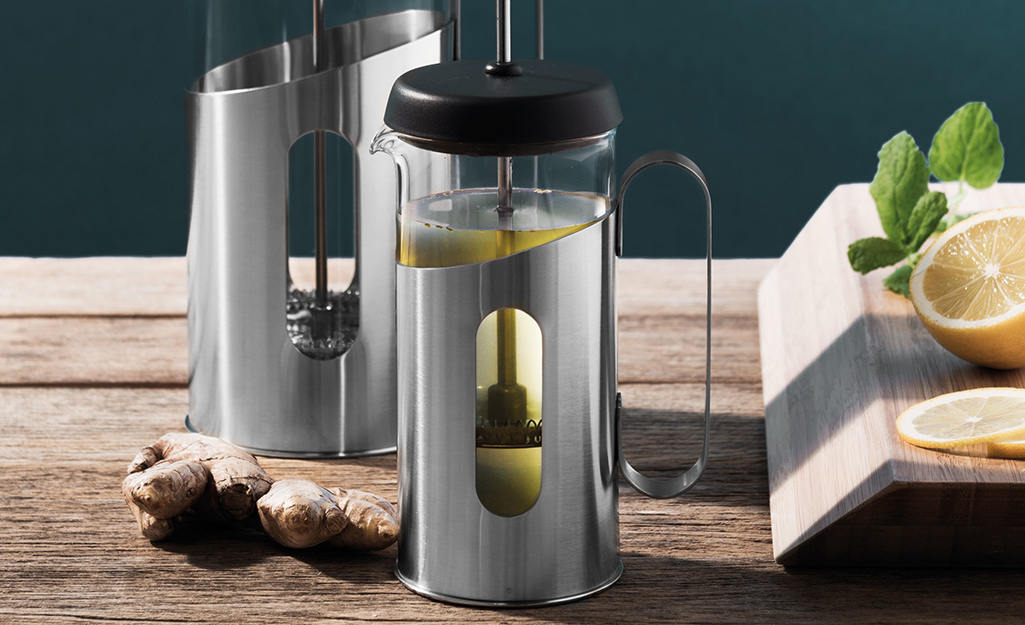
Some of the best French presses come in different sizes, but even if you don’t drink a lot of coffee every day, a one-liter press, or about 34 ounces, is a popular choice.
When you're comparing sizes of French, think about how much coffee you drink at a time. Some French presses make just two or three cups while others brew up to twelve.
Four ounces is considered a standard cup of French press coffee, and some models are labeled with how many ounces they make, not cups. For example, a 34-ounce press makes four eight-ounce cups of coffee. If this doesn't seem like much, remember that you can quickly make more coffee, and brewing small amounts each time ensures a fresh taste.
Look for the size that works in your available space, whether you plan to keep the press on a countertop or in a cabinet. A small press is portable and saves space.
Plunger Types and Styles in French Presses
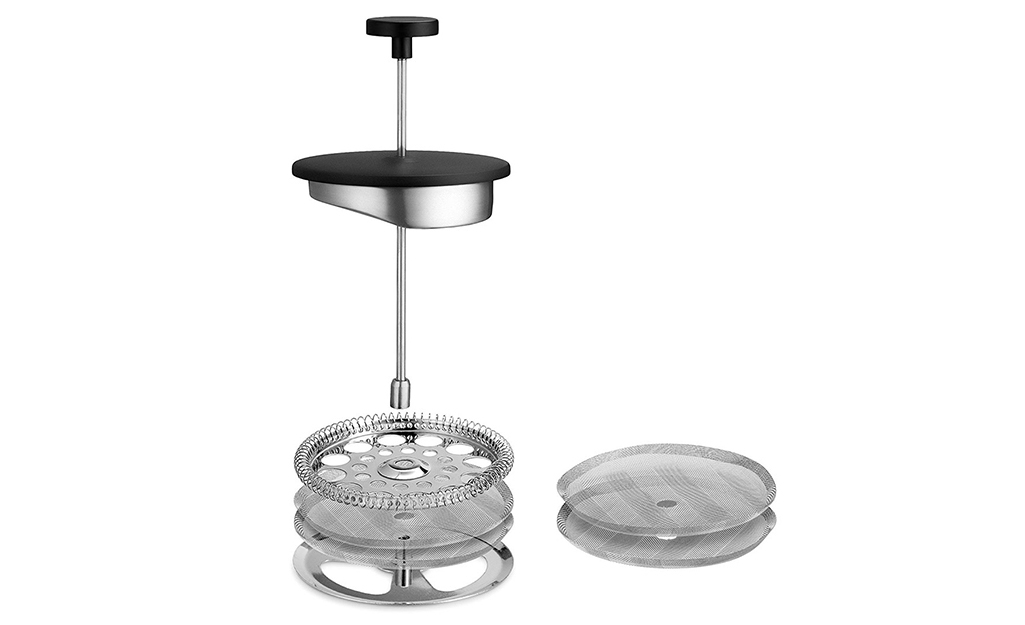
French presses have plungers with multiple screens, usually made of stainless steel. Screens made of fine mesh catches small coffee grinds and hold them at the bottom of the carafe. Screens should be sturdy, so they won’t warp, but some screens are replaceable.
Look for a plunger that pushes down easily without sticking or scraping the sides noisily. The plunger should form a snug seal, so grinds don’t wind up in the coffee. It should also be easy to take apart for cleaning.
Your best French press may be able to substitute for an espresso machine if you use ground espresso or dark-roast beans in about twice the usual amount. Check the manufacturer's instructions for details.
Insulated vs. Non-Insulated Carafes for French Press Makers
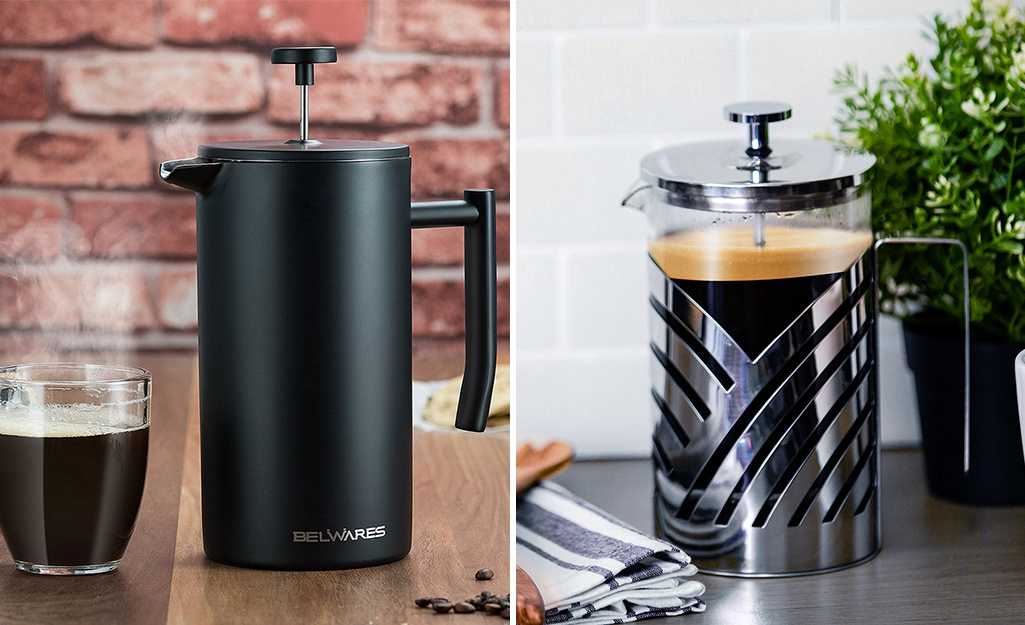
French press coffee makers are available with insulated and non-insulated carafes. When comparing an insulated versus a non-insulated French press carafe, check to see if the non-insulated one will retain heat for at least twenty minutes. After that, the coffee may start to
taste bitter.
Durable stainless steel carafes retain heat well, resist corrosion and won’t rust.
Glass carafes are attractive but may crack or chip if dropped, and most will feel hot to the touch. Carafes with double-wall construction typically last a long time and stay cool to the touch.
If your French press will be kept on a kitchen counter, look for a carafe with an elegant design. Many have attractive frames made of plastic or metals like stainless steel or copper.
Stainless steel carafes are available with a mirror or brushed finish, while some carafes have brew-through lids.
Materials Used in the Best French Presses
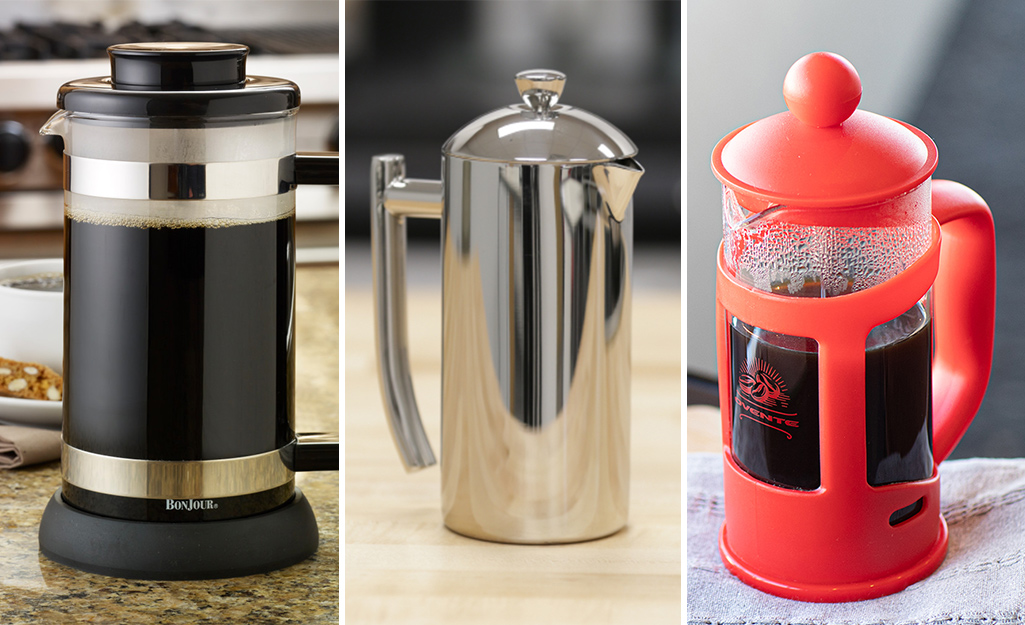
Carafes can be made of glass, stainless steel or BPA-free plastic. Glass carafes are usually made of borosilicate glass, which resists heat and thermal shock. They can break or chip, but most are replaceable.
A press with plastic housing is often budget-friendly, lightweight and portable enough to take along when you’re camping or traveling. Plastic presses may not last as long as those made of glass or stainless, and they can get scratched, but they’re usually unbreakable.
Glass lets you watch the brewing process but loses heat faster than other materials. Glass carafes sometimes have plastic or metal frames around them to help prevent damage, although you may have to remove them for washing.
Stainless steel carafes, especially if they’re insulated, keep liquids hot for a longer period of time than glass or plastic and won’t break. You can’t see through them, however, to check how much coffee is inside.
Most presses are dishwasher safe but hand-washing may help them last longer. Follow your manufacturer’s instructions for their care and cleaning.
Single Filters vs. Dual Filters in French Press Makers
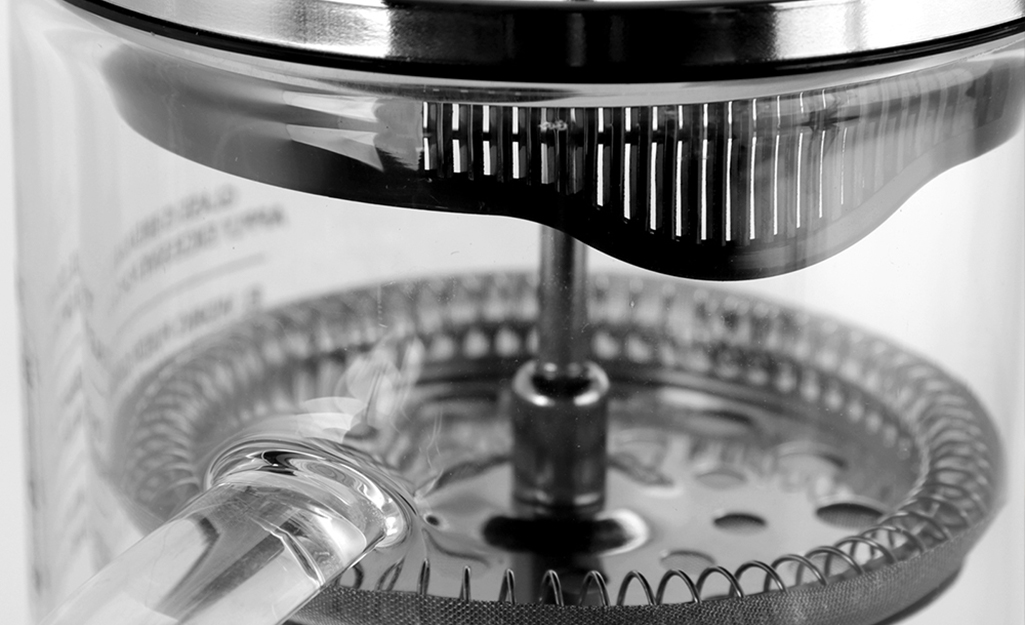
Most French presses have a single filter or dual filter. A dual filter with a fine mesh screen can catch most small grinds that get past a single filter. This results in fewer sediments in the bottom of the pot.
Hand washing is usually recommended for single or dual filter screens since the high water pressure in a dishwasher can make them break down faster. Single or dual filters in French presses can usually be replaced.
Best Coffee Grinder for a French Press
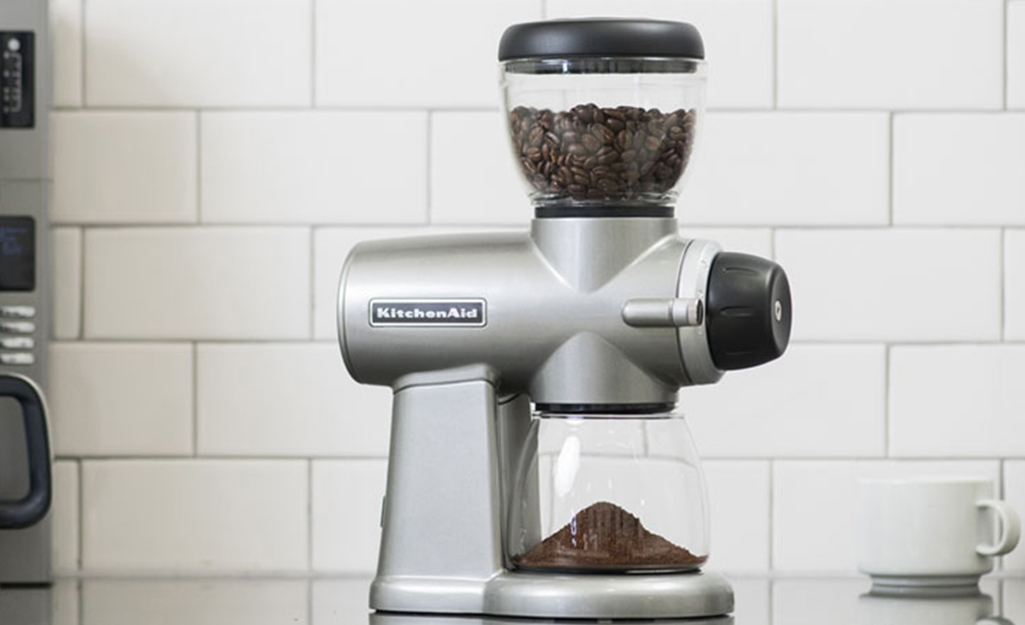
What is the best coffee for a French press? Many people like medium-to-coarse ground coffee. Others grind their own medium to dark-roasted beans to help retain the natural, flavorful oils.
For the best-tasting coffee in a French press, you’ll probably want to grind your own beans. Most pre-ground coffee is too fine and will drift down into a sludge-like layer in the bottom of your cup. Other grinds may be too coarse for maximum flavor extraction.
There are two main types of coffee bean grinders. One uses blades that chop the beans, so the grinds become finer the longer you run the blades. The other type, a burr grinder, uses two cone-shaped, ridged burrs to crush the coffee or two parallel, serrated rings to grind the beans.
Bladed grinders heat the bean as they process them and can affect their flavor. Also, they don’t produce uniform grinds, which can result in over-extracted or under-extracted coffee that tastes bitter.
Burr grinders are preferred by many avid coffee drinkers because they grind the beans uniformly and produce less heat at lower speeds. They’re quieter to operate and don’t clog as often as bladed grinders that produce very fine particles.
Filter Systems for the Best French Press Coffee Makers
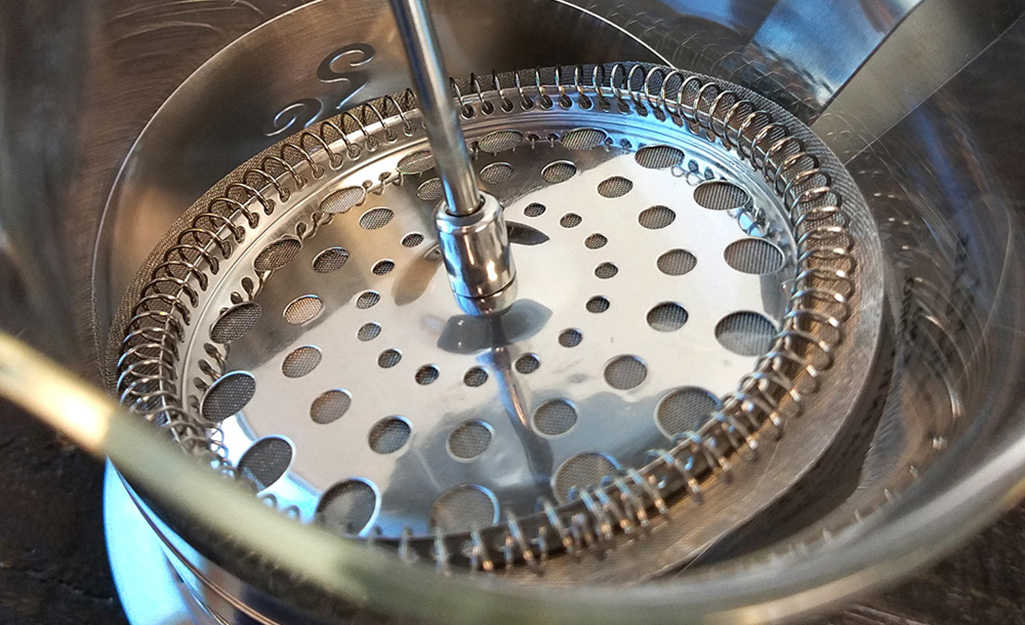
The filter systems in French press coffee makers can be made of stainless steel, chrome, BPA-free plastic or stainless steel mesh in a plastic frame. Instead of just one or two filters, a press can have multiple, stacked, ultra-fine filters that extract maximum flavor from the coffee grounds while trapping grit.
Food-and-drink grade stainless steel filter systems will not rust. Some of the best French press coffee reviews report that stainless and chrome filter systems catch more small grinds than plastic ones. Most filter systems are easy to dissemble and should be hand-washed to help them last longer.
A French press can help any coffee lover get a smooth, full-bodied cup every time. From size to filter type and material, many options are available. The Home Depot delivers online orders when and where you need them.

